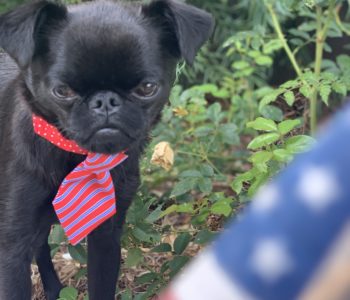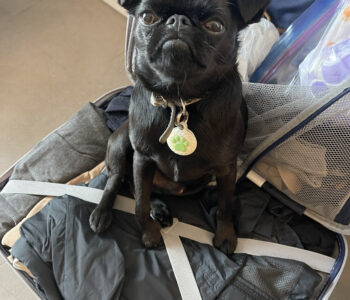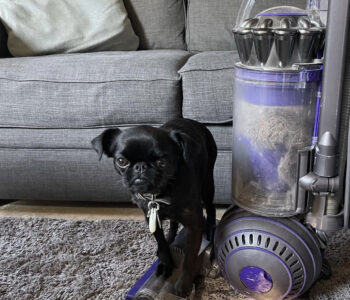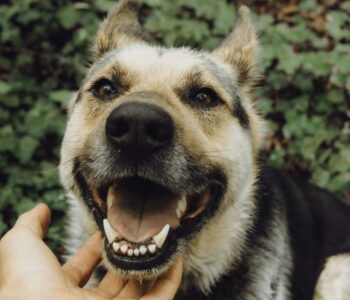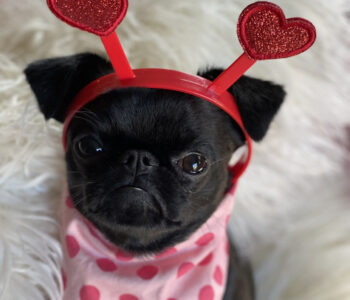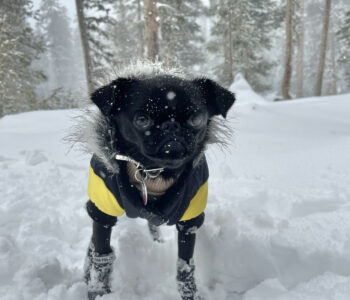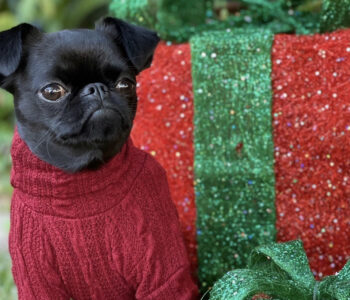Holiday Pet Hazards
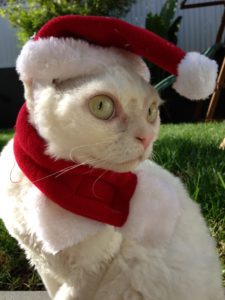
Singing Christmas carols, lighting the Menorah, visiting Grandma…going to the vet? Probably not your idea of a holiday event, but unfortunately many families find themselves visiting their veterinary clinics during the holiday season for unfortunate and preventable emergencies. While the holidays are festive times, they can also be very dangerous times for our pets. Each year thousands of pets are seriously injured during the holidays; intestinal obstructions, chocolate toxicity, burns, and pancreatitis are a few of the most common reasons pets need medical attention during the month of December. In order to ensure that your nights are filled with visions of sugarplums, rather than long waits in a veterinary emergency room, keep these things in mind:
Holiday Decorations
Pets are inquisitive by nature and their curiosity can get them in trouble. While a Christmas tree adorned with glistening ornaments and lights may be a feast for our eyes, we would never think of putting one of those shining ornaments in our mouths. However, our pets see these twinkling objects as new toys beckoning to be examined, played with, and even eaten. Shattered glass ornaments are razor sharp and can injure pets and their people. We know ornaments can choke animals but unfortunately many of us don’t realize that linear objects, like tinsel, string, yarn, and ribbons, are also quite dangerous. Not only can pets become entangled but, if ingested, linear objects can cause life-threatening intestinal blockages unless they are promptly removed surgically. This is especially common with kittens and puppies.
Candles
Little paws can do more than break fragile glass ornaments; they can also knock over candles. Tipped candles can burn your pet or even worse lead to household fires.
Plants
If you have pets, avoid lilies, ivy, holly, mistletoe, Christmas greens, and poinsettias. These traditional holiday plants, if eaten, can cause symptoms as mild as vomiting and diarrhea or as serious as kidney failure leading to death. Lilies in particular are highly toxic to cats and chewing on leaves, flowers or any part of these plants can be deadly so I recommend keeping all lilies out of the house if you have cats!
Food
Holiday food can have serious consequences for pets. Animals should never have access to chocolate or alcohol. Bones, except for those specially treated and intended for canine consumption, should also be avoided. Poultry bones can splinter and get lodged in the gastrointestinal tract. Ham and beef bones can break teeth or cause intestinal obstructions. Though tempting, and always appealing to dogs, you should avoid giving your pet leftovers or tastes of your own food, especially during the holidays. Not only can this lead to obesity and encourage annoying begging, it can cause a pancreatitis attack. Pancreatitis is an inflammation of the pancreas usually caused by fatty foods like turkey, ham, gravy, and chicken skins. It is a serious condition that can be fatal if left untreated.
Remember these important tips during the holidays. Watch out for choking and obstruction hazards. Avoid pet-toxic plants or, at least, be sure to keep them out of reach of your pets. Don’t give animals chocolate, alcohol, or bones to your pets. And instead of giving your pet scraps from your holiday meal, buy your pet a pet-safe treat, a new toy, or a new outfit. Paying careful attention to these warnings will help keep the holidays happy for you and your pet and should prevent unscheduled visits to the vet.

